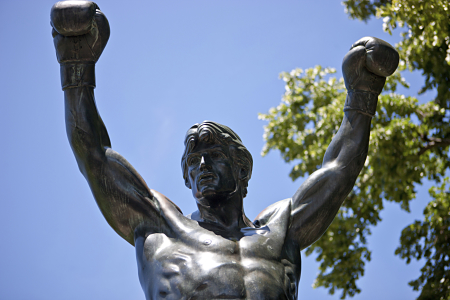Only weeks after being banned by the Philadelphia Parking Authority, UberX and Lyft were put back into the game in late October when the Pennsylvania Senate passed a bill permanently legalizing the ridesharing services.

Under the legislation, UberX and Lyft will provide funding to the Philadelphia School District and city -- 1.4 percent of their gross receipts.
Ridesharing drivers will be subject to licensing and safety standards set by the Philadelphia Parking Authority (PPA). The rules will mimic guidelines taxi and limo drivers must follow.
The app-driven ridesharing services hire everyday people, who use their personal cars, to transport passengers to a destination. Taxi drivers say it's unfair that they pay the PPA high fees for licenses and carry large insurance policies, while UberX and Lyft drivers don't.
The legislation will end a more than year-long fight over the services. The companies have been in and out of court, fighting the PPA to operate. At times, the PPA suspended the battle to ensure there were enough transports for major events like this summer's Democratic National Convention.
Earlier in the month, the PPA ordered Uber and Lyft to cease some operations in the city.
“While we understand that TNC services (Uber-X and Lyft) are very popular with the public and many elected officials want to see them continue, with the expiration of Act 85 of 2016, TNC (transportation network company) service is now illegal for point-to-point service in the City of Philadelphia and the PPA must follow the provisions of the law,” said Corrinne O’Connor, deputy executive director of the PPA.
In less than a month, the ridehail companies were back in business in Philadelphia with the passage of new legislation.
The ruling to suspend the services stems from a lawsuit filed in July by Ron Blount, a representative for taxi drivers and the Taxi Workers Alliance, accusing the PPA of cutting a secret deal with the ride-hailing companies to allow them to operate.
Now that the ridehail companies can operate in the city, the PPA must regulate them.
“The bottom line is: The regulation of taxi cabs is changing now, and it’s going to change forever,” said Dennis Weldon, general counsel to the PPA.
The question of how the PPA will collect taxes, and ensure they get what the new law requires the TNCs to pay, is now a PPA issue.
Director Russ Wagner expressed concerns that the Authority would be able to estimate how much it will cost to regulate the TNCs.
In addition, changes to taxi regulations made in response to lawsuits and the new legislation is affecting estimates of how much the PPA’s Taxi and Limousine Division would bring in from medallion cabs. Currently, taxi medallion cabs pay a 1 percent levy on their gross revenues, plus additional inspection and other regulatory fees.
Governor Tom Wolf said the passage of legislation was a positive for the city and the state.
“I am pleased the legislature worked with me to finally pass a long-term solution for ride sharing companies like Uber and Lyft to operate everywhere in Pennsylvania," Governor Wolf said. "The commonwealth has proven itself to be a place where these companies can invest and grow, and we must continue to find ways to fuel the development of these and other high-tech companies. We can do this by fostering an economic climate like we have seen in Pittsburgh that has resulted in the surge of tech development."
Wolf said the new legislation puts an end to the ride hail question and provides a long-term solution to school funding.
"Equally important is that two-thirds of the revenue derived from ride sharing in the city of Philadelphia will go to the Philadelphia School District to help the district continue to strengthen its financial footing. This funding, on top of the additional $97 million I worked to secure in my first two budgets for the school district, will help provide the resources our children need,” he said.
